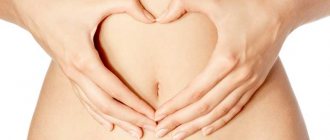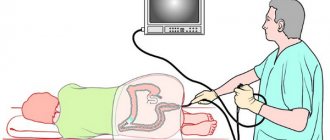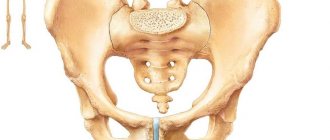Flatulence is the formation of gases in the intestines, which exceeds the amount necessary for the proper functioning of the digestive organs. In most cases, this phenomenon causes discomfort without posing a health hazard, but there are cases when it serves as a signal of the presence of various diseases.
Nutrition for flatulence and its tasks
Signs of flatulence appear in every person from time to time. They should not be ignored, as they may be one of the manifestations of a more serious disease of the gastrointestinal tract. In addition, in the absence of proper treatment, the patient may end up with a protracted allergic reaction.
The following factors can provoke the development of flatulence:
- A huge amount of dairy products in the diet, especially if you are lactose intolerant.
- Inflammatory processes in the intestines (colitis, enterocolitis).
- Consumption of legumes, vegetables and fruits in large quantities.
- Dysbacteriosis and deficiency of beneficial microflora in the intestines.
- Eating incompatible foods at one time.
- Intestinal parasites, including worms.
- Bad habits: talking while eating, rushing and not chewing food enough, regularly chewing gum. The latter contains maltodextrin, which promotes increased gas formation.
All of the above factors provoke fermentation of the contents in the intestines and trigger putrefactive processes in it, which result in bloating and increased gas formation. A therapeutic diet helps prevent them.
The main goals of such a diet:
- organization of a complete and balanced diet with all the vitamins and microelements a person needs;
- normalization of intestinal motility;
- restoration of normal microflora;
- prevention of rotting and fermentation processes in the intestines;
- minimizing the risk of developing inflammatory processes.
Important! In medical practice, all these tasks are met by treatment table No. 5 according to Pevzner. Meanwhile, you should not blindly follow his recommendations, since the individual characteristics of each organism, as well as the course of the disease, force the attending physician to adjust the nutrition of each patient.
The daily intake of nutrients is of great importance for the normalization of a person’s condition. According to him, the body should receive daily:
- up to 120 g of proteins;
- 50 g fat;
- up to 200 g of carbohydrates, excluding simple sugars.
Also, don't overeat. The optimal energy value of the diet is 1600 kcal.
The main causes of increased gas formation in adults
Bloating is accompanied by a feeling of heaviness in the abdominal cavity, belching and increased flatulence, reporting. The accumulation of air (gases) most often occurs against the background of a number of diseases and conditions:
- aerophagia (swallowing air) and overeating;
- endocrinological disorders, in particular diabetes mellitus;
- inflammatory bowel diseases and gastrointestinal problems (colitis, reflux esophagitis and others);
- hepatitis, liver cirrhosis;
- chronic constipation;
- metabolic disorders;
- parasitic infections;
- lactose intolerance, gluten intolerance and many others.
Intermittent bloating can occur due to poor diet, such as frequent consumption of foods high in starch or sugar. Gas formation is often caused by poor chewing and rapid consumption of food, dysbacteriosis, sweet carbonated drinks, chewing gum - there are many reasons, but it is necessary to follow a strict diet, excluding certain foods from the diet.
https://youtu.be/6O1R_LHttMs
How to get rid of flatulence with diet
In order to experience the maximum effect of the diet you are using, you must listen to the recommendations of nutritionists. They advise:
Eat food every time only in a calm environment. Snacks and “eating on the run” only make the situation worse. Food should be chewed thoroughly. It is not recommended to talk at the table, since on the one hand this can provoke the swallowing of air, and on the other hand, it can increase the load on the gastrointestinal tract.
- Do not wash down food with water. It is better to drink drinks after 30 – 60 minutes.
- Develop a unique regime for yourself and eat at certain hours, thanks to which you will tune in to the desired mood and digestive tract. It will intensify its work at the specified time, simultaneously releasing gastric juice. In addition, enzymes and bile acids will enter the body at certain hours, thereby minimizing the risk of developing complications in the gastrointestinal tract, which usually appear with irregular nutrition.
- Divide the amount of food consumed into 5 – 6 meals. Such a fragmented diet will allow useful substances to be broken down in the intestines in a timely manner and absorbed. At the same time, all processed products will be promptly removed from the body, preventing the development of rotting and fermentation.
- Eliminate fatty and fried foods from your diet. It is better to boil, bake, stew, or steam dishes.
- Monitor the amount of salt you consume. Ideally, it should not exceed 6–8 g per day, otherwise the food will irritate the intestinal walls.
- Maintain drinking regime. Just 2 - 2.5 liters of liquid per day allows you to promptly remove processed products from the body and prevent fermentation.
Note! The temperature of the food entering the body also affects the functioning of the intestines. The therapeutic diet for flatulence involves eating warm foods. Excessively hot or cold temperatures increase the production of gastric juice by the stomach and enzymes by the pancreas, which leads to intestinal irritation.
Correct selection of foods for one meal can also reduce the manifestations of flatulence. It is not recommended to combine salty and sweet foods, vegetables or fruits and milk, milk and animal proteins. Such compounds load the gastrointestinal tract, increase intestinal motility, lead to fermentation and increased gas formation.
Why does the intestine produce a lot of gas?
There are many reasons for the formation of excess gas in the intestines.
- Some gastrointestinal diseases (for example, ulcers, colitis, infections, enzyme deficiency, imbalance of intestinal microflora). They often cause diarrhea and discomfort when the lower abdomen hurts.
- Lack of normal physical activity. This problem is especially relevant for people forced to adhere to bed rest.
- Gases entering the gastrointestinal tract during smoking, talking while eating, etc.
- Stress.
- Age (intestinal bloating is very common in infants).
- Pregnancy.
- Women may suffer from flatulence due to some gynecological diseases.
- Eating foods that make your stomach bloat.
https://youtu.be/SujLosIa7Ho
Allowed foods for bloating
For flatulence, doctors advise including in the diet those foods that do not cause increased formation, as well as those that have carminative properties and, therefore, alleviate the patient’s condition.
It is better to give preference to food that normalizes stool due to soft and slow passage through the intestines. However, special attention should be paid to those products that can affect its microflora, stimulating the growth of beneficial bacteria.
Important! The diet for flatulence should be maximally enriched with vitamins and microelements, including potassium, iron, calcium, as well as lipotropic substances, as they have a beneficial effect on bile and blood vessels.
Allowed use:
- crackers made from wheat flour and dried bread;
- lean fish - it can be boiled in pieces or used as part of cutlets and other minced meat dishes;
- lean types of meat without skin - you can use it to make steamed cutlets, meatballs, meatballs or soufflé;
- low-fat and non-acidic dairy products, cottage cheese, sour cream, yogurt, curd soufflé or biokefir, provided that the person does not have lactose intolerance;
- boiled eggs (not hard-boiled), omelettes;
- drinks: green tea, rose hip, bird cherry or blueberry decoction, cocoa prepared with water, fennel tea, compote;
- vegetables: pumpkin, potatoes, carrots, zucchini;
- soups cooked in weak meat or fish broths;
- porridge: buckwheat, oatmeal, semolina, rice, cooked in water and ground;
- greens: dill and parsley;
- bay leaf, cumin.
Causes of gas formation
Gas in the digestive tract (esophagus, stomach, small and large intestines) can form in two cases.
First, a process characterized by the tendency to swallow air that reaches the stomach rather than the lungs. This physiological state is called aerophagia. Occurs when eating or drinking. In addition, chewing gum, smoking, or wearing dentures can also cause people to swallow more air. As a result, belching occurs when air escapes through the oral cavity.
Occasional belching during or after meals is normal, as is the release of gas when the stomach is full. Excessive swallowing of air can lead to more frequent belching. If there is constant belching, then this indicates a gastrointestinal disorder, which may include peptic ulcers, gastritis or constipation. Belching is the most common way in which air containing nitrogen, oxygen and carbon dioxide is partially expelled from the stomach.
Second, the body is unable to digest certain carbohydrates found in many foods due to the deficiency or absence of certain enzymes that aid digestion. Undigested food passes from the small intestine to the large intestine, where the intestinal bacterial flora partially digests the food. A small amount moves within the intestinal lumen of the colon and is released through it.
https://youtu.be/yc0-262SHFU
What foods cause bloating?
For flatulence, products that increase gas formation are undesirable.
Conventionally, they are all divided into 3 groups:
Food containing plant coarse fiber. The latter nourishes the intestinal microflora, as a result of which its growth increases and, as a result, the amount of waste products that provoke fermentation processes in the intestines.
- Simple carbohydrates. They are not only quickly digested, poorly saturating the body, but also contribute to the rotting of food masses.
- Products that a person cannot tolerate, for example, milk for lactose intolerance. If this rule is ignored, a protracted allergic reaction may develop.
Additionally, you should avoid foods that require prolonged digestion and, accordingly, increase fermentation. A striking example of this is protein foods of animal origin, that is, meat, which, due to connective tissue, does not pass through the gastrointestinal tract for a long time.
Note! The situation with flatulence is also aggravated by products that contain a lot of organic acids, essential oils, preservatives and food additives. By irritating the intestinal mucosa, they stimulate peristalsis.
Prohibited products include:
- fresh bread made from wheat or rye flour, pastries;
- stringy fatty meat and fish;
- salted, smoked, including caviar;
- cocoa made with milk, coffee;
- soups made with strong broths due to the large amount of extractives in them;
- pies, pasta, dumplings, dumplings and other dishes prepared with the addition of wheat flour and/or yeast;
- sausages - they contain not only soy, but also stabilizers, flavor enhancers, and harmful food additives;
- legumes;
- canned food, marinades, pickles;
- dairy and fermented milk products, if intolerant;
- fatty – sour cream, lard, butter, cream;
- sauces, spices;
- sweets: honey, jam, chocolate, ice cream;
- fried or hard-boiled eggs;
- nuts;
- fruits: grapes, melons, pears, apples, peaches;
- dried fruits (raisins), prunes in moderation;
- cereals: millet, barley, pearl barley;
- sweet and unsweetened soda, beer, kvass, since the latter contain yeast;
- mushrooms;
- artichokes;
- Jerusalem artichoke;
- cabbage, radishes, onions, rutabaga.
Show full list »
Important! Consulting a doctor will help you create your diet as correctly as possible with permitted and prohibited foods, depending on other symptoms of the disease - diarrhea or constipation, irritable bowel syndrome.
Failure to comply with the doctor’s recommendations entails constant excess gas formation, rumbling and pain in the stomach, digestive problems and lack of regular bowel movements. As a result, over time, the normal intestinal microflora dies, and its place is taken by bacteria that provoke decay. The worst thing is that in the process of their life, they release toxins that enter the blood and negatively affect the liver and other organs. Following this, hypovitaminosis occurs and the person worsens or develops other diseases.
Prevention of flatulence
Preventing bloating consists of following these recommendations:
- quitting smoking and alcohol;
- exclusion of all foods that cause unpleasant symptoms;
- menu correction;
- eliminating overeating, eradicating the habit of talking while eating;
- stress management;
- timely treatment of intestinal diseases, helminthic infestations;
- taking probiotics.
Correcting the diet, eliminating unhealthy foods and habits, and a healthy lifestyle is the key to the normal functioning of the digestive tract.
Sample menu for bloating
| Day of the week/meal | Breakfast | Lunch | Dinner | Afternoon snack | Dinner |
| Monday | Rice porridge, compote | Cheese sandwich, green tea | Spinach soup cooked in chicken broth, mashed potatoes, steamed fish, tea | Kissel | Buckwheat porridge, carrot salad |
| Tuesday | Oatmeal, green tea | Low-fat cottage cheese with sour cream | Vegetable soup, yesterday's bread, chicken with vegetables, compote | Favorite fruits, except forbidden ones | Stuffed cabbage rolls, rice |
| Wednesday | Steamed rice, egg | Pancakes with dried apricots and yogurt, green tea | Buckwheat soup with chicken broth, steamed beef with stewed vegetables | Muesli with yogurt | Baked potatoes with vegetables, compote |
| Thursday | Oatmeal with dried fruits, jelly | Sandwich with cucumber and boiled beef, green tea | Vegetable soup, steamed fish with rice | Crackers and kefir | Salad with vegetables and boiled chicken, seasoned with sour cream |
| Friday | Oatmeal, egg | Baked zucchini stuffed with minced meat, tea | Buckwheat soup, potato casserole with meat, compote | Baked apples | Steamed vegetables with chicken meat, juice |
| Saturday | Buckwheat and jelly | Cottage cheese with dried apricots | Chicken broth with vegetables, chicken fillet, compote | A handful of dried fruits steamed with water | Stuffed peppers, green tea |
| Sunday | Rice porridge, tea | Cheesecakes baked in the oven, a little sour cream and tea | Chicken broth, boiled chicken, stewed vegetables, compote | Kissel, croutons | Buckwheat, stewed carrots, steamed beef cutlet |
In general, thoughtful nutrition can reduce the manifestations of flatulence, improve intestinal function and significantly improve a person’s well-being. If you consult a doctor in a timely manner, additional therapy is usually not required.
Sovinskaya Elena, nutritionist
28, total, today
( 165 votes, average: 4.62 out of 5)
Oyster mushroom: benefits and harm
Raisins: benefits and harm
Related Posts
Swelling after kefir: reasons
If after drinking kefir you have a feeling of fullness in your stomach, there may be several reasons for this:
- The lactic acid present in the drink causes irritation of the gastrointestinal mucosa. If there are problems with the digestive organs (ulceration, erosion, etc.), a feeling of bloating will be a direct consequence;
- It may swell due to individual intolerance to lactobacilli or lactose;
- When baked goods and other carbohydrate-containing products, as well as legumes, are washed down with kefir, a fermentation reaction occurs and, as a result, severe gas formation;
- The body does not accept kefir starter well;
- The product turned out to be stale and caused stagnation in the intestines, causing the opposite effect.
How to treat
The most effective remedy for treating flatulence is activated carbon. If your stomach swells after drinking kefir, you need to take this drug at the rate of one tablet per 10 kg of weight.
The attack is stopped even better if such tablets are first finely crushed.
Important! This treatment method is not used if the patient is diagnosed with gastritis or a stomach ulcer. For effective therapy, you need to contact a gastroenterologist.
To eliminate flatulence, the use of decoctions and infusions of medicinal herbs is indicated:
- dill water (to prepare it, you need to pour a small amount of seeds with two glasses of boiling water, leave in a thermos and drink half a glass 4 times a day);
- chamomile decoction (flowers should be brewed in boiling water and taken 50 ml);
- mint and chamomile tea (it can be brewed like a regular tea drink);
- tea with ginger.
It is useful to drink a drink made from lemon zest. For one cup of boiling water you need to take 5 grams of dried peel of this citrus fruit.
Medicines such as Maalox, Espumisan, Smecta, Atoxil will also help to quickly overcome flatulence.
Treatment with kefir
Since this condition is not uncommon, ways to combat this unpleasant phenomenon have long been found. Everyone chooses the best option for themselves, but the integrated use of methods significantly speeds up the solution to the problem.
Nutrition correction
In case of occasional cases of flatulence, it is enough to avoid foods that provoke fermentation and gas formation. These include:
- bread;
- apples;
- legumes;
- grape;
- smoked meats;
- beer and wine;
- dried fruits;
- fatty meats;
- confectionery.
During the period of especially active gas formation, it is recommended to eat boiled or stewed vegetables (carrots, beets), porridges cooked in water, lean meat and fish. You should eat 4-6 times a day, while simultaneously drinking a sufficient amount of still water. You can also drink kefir, if you do not combine it with other products.
Sometimes it’s quite simple to activate your intestines - you just need to move more. But you don’t have to sign up for a gym to do this. It is enough to do simple exercises. For example:
- exercise “bicycle” (flexion and extension of legs bent at the knees in a lying position);
- rocking on a ball (lying on your stomach);
- yoga classes.
A light self-massage of the abdomen will also not hurt. To do this you need:
- take a “lying on your back” position;
- place a cushion under your neck and bend your legs at the knees;
- warm up your hands a little and place them on your stomach;
- Next, you need to stroke it clockwise, pressing slightly on the navel area;
- do the same movements on the sides.
The choice of medications to eliminate bloating will directly depend on the cause of gas formation. Several groups of funds are used.
If you experience frequent bloating, this fermented milk product should be present on the dinner table at all times:
- a light breakfast should end with a glass of warm kefir, taken half an hour after eating, which will provide relief for a bloated stomach;
- the subsequent afternoon snack should be accompanied by the same amount of this fermented milk product;
- A glass of warm drink will precede the night's rest an hour - this will prevent bloating.
To add sweetness to kefir, many try to add sugar to it, which should not be done.
Although adding sugar does not change the quality of this fermented milk product, it contains fast carbohydrates, which are completely undesirable during flatulence.











